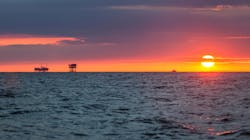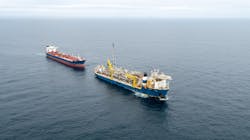NSTA issues priority UK offshore oil and gas licenses
Offshore staff
ABERDEEN, UK — Britain’s North Sea Transition Authority (NSTA) has offered an initial 27 licenses under the UK’s 33rd Oil and Gas Licensing Round in the central and northern North Sea and west of Shetland.
The awards are in areas prioritized due to their potential to go into production more quickly than others. The aim is to encourage the operators to move forward with their plans to explore and develop the potential oil and gas resources, with an average time from license award to production in UK waters being around five years.
In addition, the NSTA has merged six more blocks, which were to be offered, into five existing licenses.
All of the 258 blocks, which have been applied for, have been through the initial Habitat Regulation Assessment (HRA), and the blocks being awarded now have been identified as not requiring further assessment.
The 33rd Round, unveiled on Oct. 7, 2022, offered 931 blocks and part-blocks. It drew 115 applications from 76 companies for 258 blocks/part-blocks when the window closed on Jan. 12, 2023, the biggest response since the introduction of the UK’s Innovate Licenses in the 29th Round in 2016/17.
Currently 284 offshore fields are in production in the UK North Sea with an estimated 5.25 Bboe remaining to be produced through 2050.
The NSTA will issue its recommendation for the remaining 203 blocks still to be awarded once the Habitat Regulation Assessment Further Appropriate Assessment process has finished.
DNO North Sea (UK) has been awarded a 50% operated interest in blocks 9/9f, 9/10c, 9/14c and 9/15d in the North Sea, in partnership with Aker BP UK.
Commitments include acquiring additional 3D seismic and potentially reprocessing the data to reduce risk and volume uncertainty. Phase 1 will last up to two years after which the partners will decide whether to commit to drilling a well.
Industry association Offshore Energies UK (OEUK) said the 33d Round awards will strengthen the UK’s energy security as the sector continues to diversify into offshore wind, hydrogen, and carbon capture and storage.
It claims that by 2030, about 180 of the 284 active oil and gas fields in the North Sea cited by the NSTA will have ceased production due to natural decline. Twenty UK fields are set to stop producing this year, with only two new fields coming onstream.
Without further offshore investments, the UK could rely on oil and gas imports for 80% of its needs by 2030, OEUK warned, noting data from the NSTA that showed the UK replaced only 3% of its production with new reserves in 2022.
For every one oil and gas well drilled, the association added, about three are closed.
10.30.2023

